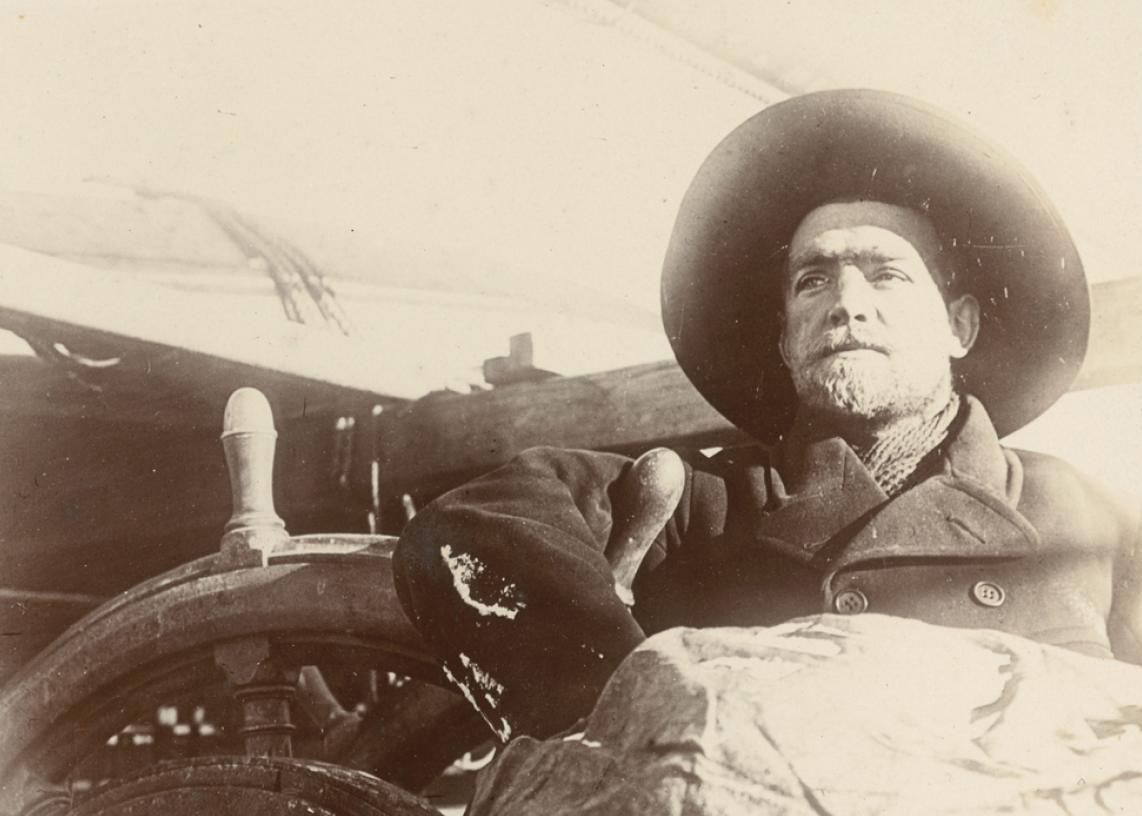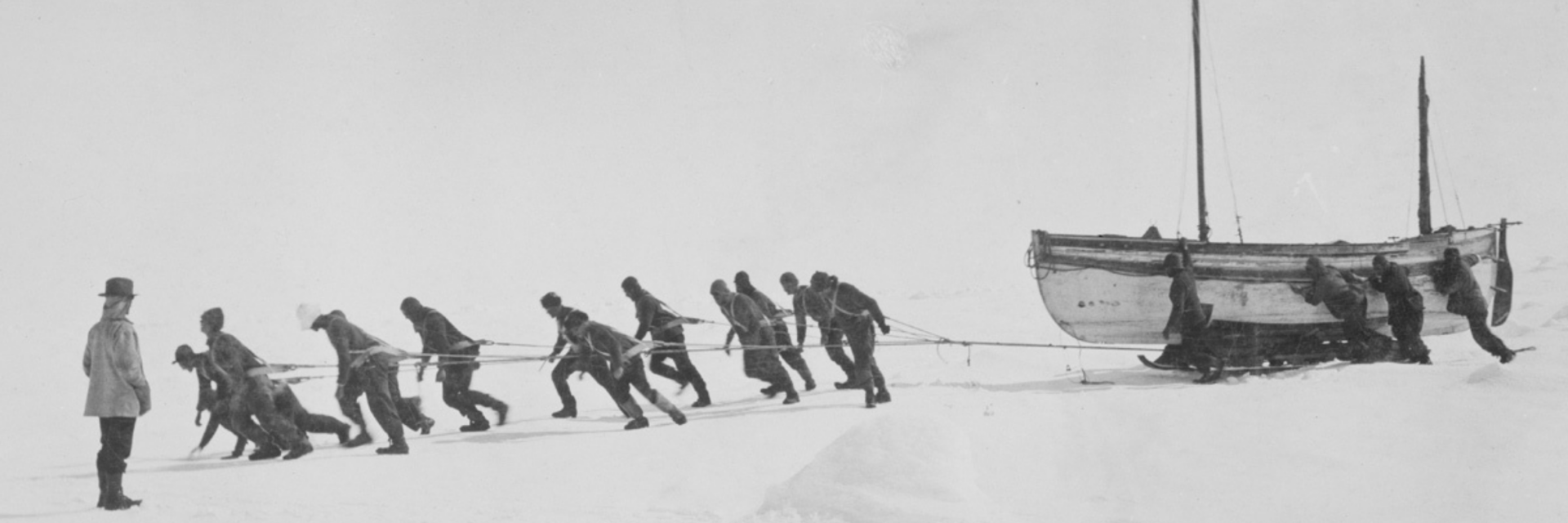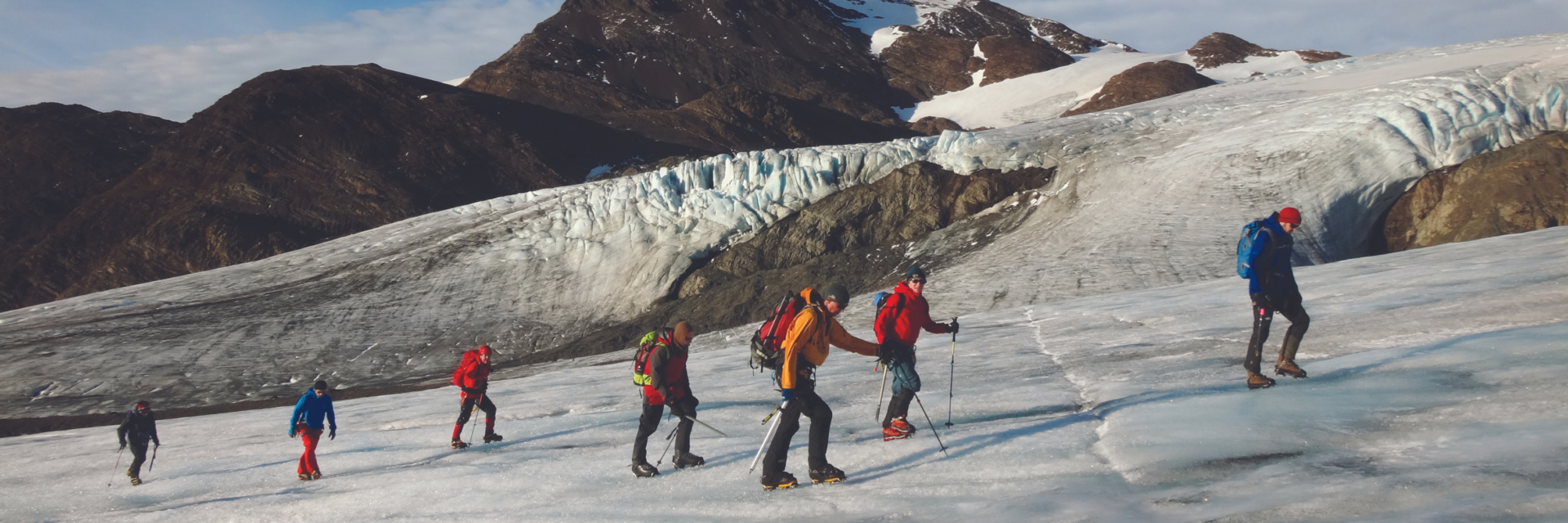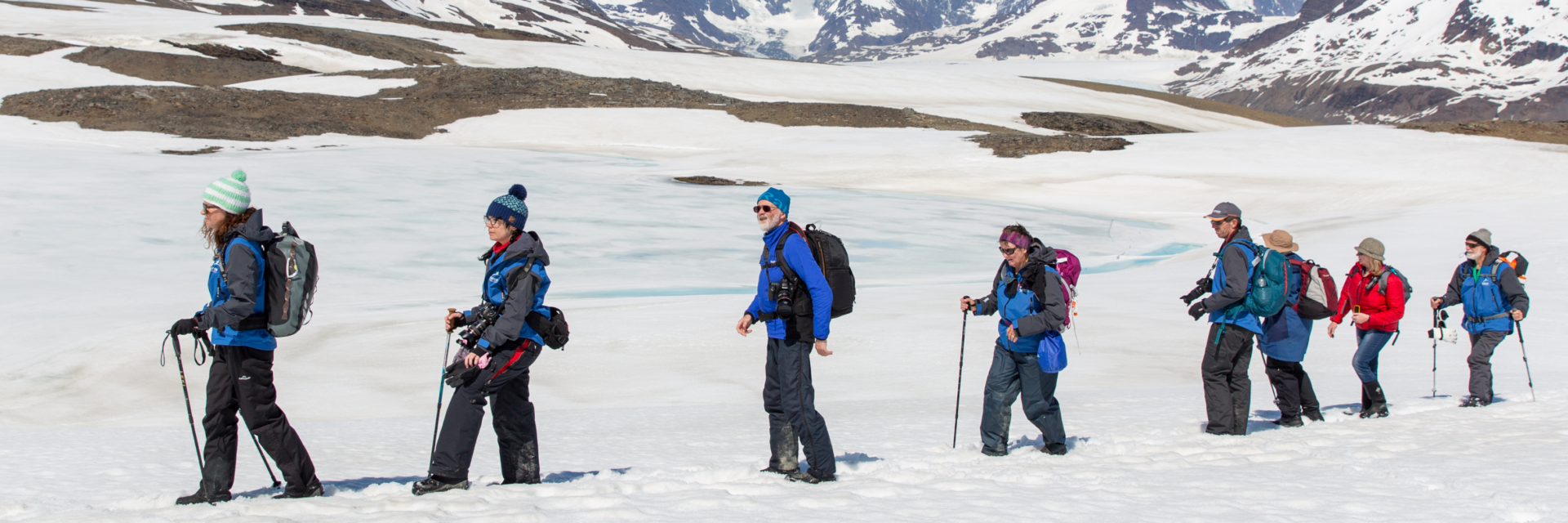Wednesday 5 January 2022 marked the 100th anniversary of the death of one of the greatest polar pioneers, Sir Ernest Shackleton. Shackleton’s legacy is still strong today, with keen adventurers joining our Antarctic expeditions from all around the world, eager to follow in his footsteps and be transported back to the “Heroic Age of Exploration”. One such adventurer is travel writer Jamie Lafferty, who joined our Antarctica Complete expedition aboard the Greg Mortimer in earlier this year, at the same time Sir Ernest Shackleton’s sunken ship, the Endurance, was discovered at the bottom of the sea. You can read about his experience in this article.
In honour of Shackleton’s profound achievements in exploration, we revisit his incredible story by answering and why his Antarctic legacy still matters today.
Credit: Falklands Maritime Heritage Trust
When was Shackleton born?
Ernest Henry Shackleton was born on 15 February 1874 in County Kildare, Ireland before moving to London where he was educated. A natural adventurer from an early age he rejected his father’s wish to follow him and become a doctor. Instead, he followed his heart and became a qualified master mariner before beginning his life of expedition and adventure on the high seas.

Why is Shackleton famous?
The story of Shackleton’s ill-fated journey exemplifies the strength of human spirit and one man’s determination to succeed against all odds. Under treacherous conditions, Shackleton’s perilous journey and the subsequent rescue of all his men remains one of the most heroic stories of all time.
Shackleton became a cult figure in the late 20th century, a role model for leadership as one who, in extreme circumstances, kept his team together in a survival story described by polar historian Stephanie Barczewski as “incredible”.
Where did Shackleton live?
The Shackleton’s were a proud Irish family who lived in Kildare and Dublin, Ireland during young Ernest’s childhood. When he was 10 years old, his father Henry qualified as a doctor, the family moved to the suburbs of Sydenham in South London where he began formal schooling.
London was home base for the young, ambitious adventurer between his apprenticeship with a shipping company and master mariner training ahead of his commissioning into the Royal Navy and sub-sequential appointment on the Discovery expedition.

How old was Shackleton when he went to Antarctica?
In 1901 Shackleton was 27 when chosen to go on the Antarctic expedition onboard the Discovery led by British naval officer Robert Falcon Scott. With Scott and one other, Shackleton trekked towards the South Pole in extremely difficult conditions, getting closer to the Pole than anyone had come before. Despite becoming seriously ill on the expedition, he gained valuable experience that would help him pioneer future polar voyages.
Why did Shackleton go to Antarctica?
There are few places on earth to have eluded man’s exploration for as long as Antarctica. During the “Heroic Age of Antarctic Exploration” (which extended from the end of the 19th century to the early 1920s) the Antarctic continent became the focus of international efforts that resulted in intensive scientific and geographical exploration. During this time 16 major Antarctic expeditions were launched from eight different countries.

How many expeditions did Shackleton go on?
Shackleton journeyed on 3 expeditions:
- British National Antarctic (Discovery) Expedition (1901)
- British Antarctic (Nimrod) Expedition (1907)
- British Imperial Trans-Antarctic (Endurance) Expedition (1914)
He wrote about his travels in publications The Heart of the Antarctic (1909) and South (1919).
On Shackleton’s most notable expedition, the Endurance, set off from South Georgia where he bid to be the first to cross the Antarctic continent. He had no idea that a year and a half later he would end up on a rescue mission trekking across the very same subantarctic island where he started. Having not so much as set foot on the Antarctic continent, the expedition’s story remains one of the most remarkable polar survival sagas of all time. Learn more about the Endurance Expedition Timeline.
In one of the most modern ships in Antarctica, the voyage is a challenge, something that only underlines the impossible task Sir Ernest Shackleton and six of his men faced when making the same journey in 1916 in their tiny sailboat, the James Caird.
Jamie Lafferty
Read Jamie Lafferty’s full article about his Antarctica cruise in search of Shackleton.
When did Shackleton die?
Shackleton’s fourth expedition aimed to circumnavigate the Antarctic continent but on 5 January 1922, he died of a heart attack off South Georgia at the age of 47. At the request of his wife, he was buried on the island.
Can you visit South Georgia?
You can visit South Georgia with Aurora Expeditions between October and March each year. The voyages encompass the best of the Antarctic Peninsula and the enchanting wildlife of South Georgia.

Can you complete Shackleton’s Crossing for yourself?
Yes, since 2001 we have offered our expeditioners the opportunity to retrace Shackleton’s 1916 crossing. If you’re an experienced alpine trekker or mountaineer, this is the once in a lifetime experience you have to add to your bucket list.
The trek takes up to three days across South Georgia from King Haakon Bay to Stromness. South Georgia is a spectacular and extreme mountain environment and although the crossing doesn’t involve any actual technical climbing, there is a steep ground crossing from the Tridents down to the Crean Glacier as well as crevasses. The crossing can vary from 35 to 50 Kilometres depending on the route and weather.

